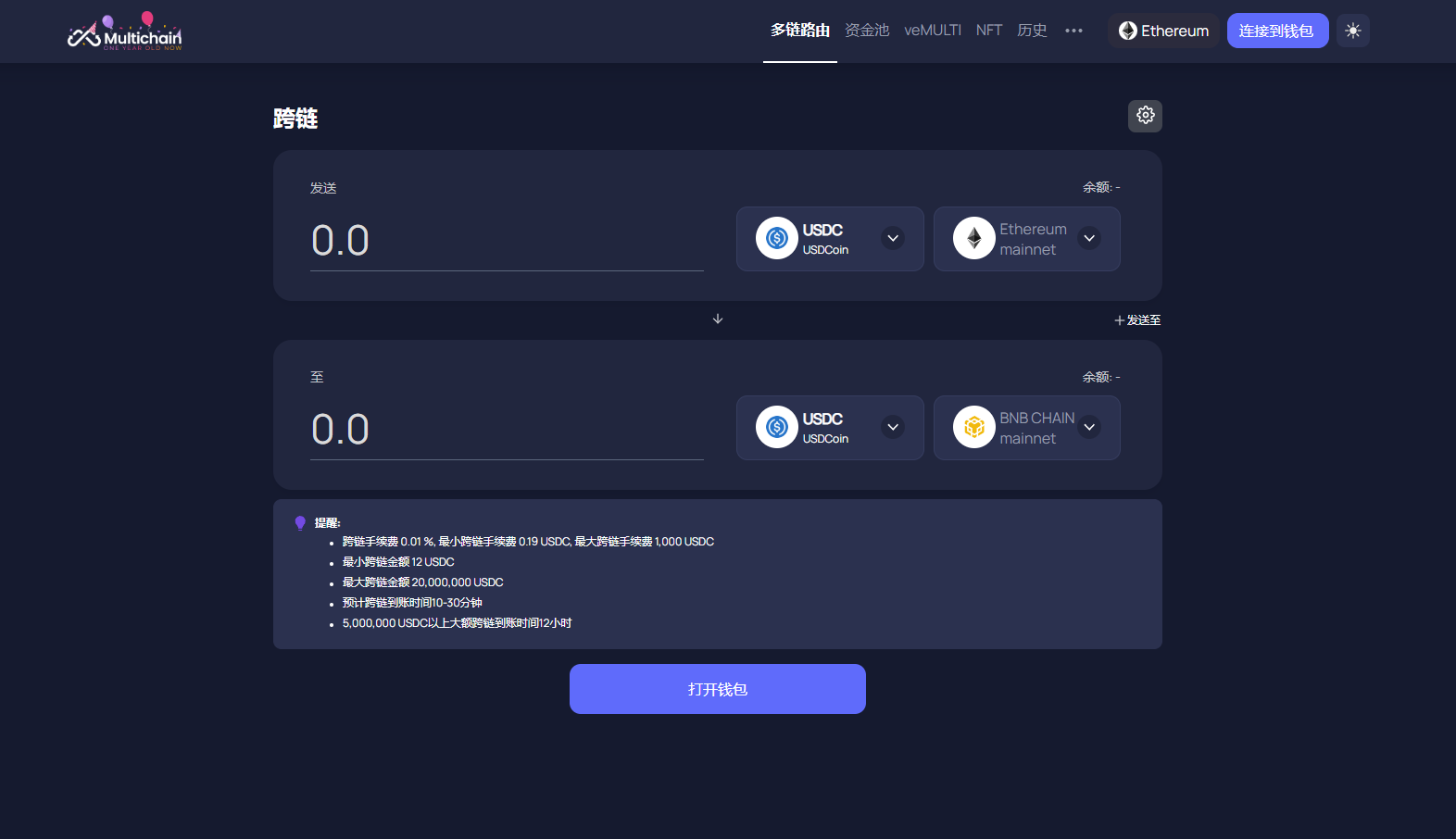










Multichain
Multichain is the ultimate router for web3, an infrastructure developed for arbitrary cross-chain interactions.
Tags:Multi-Chain BridgeMultichain

Introduction
Multichain is the ultimate router for web3. It is an infrastructure developed for arbitrary cross-chain interactions.
Multichain was created on July 20, 2020 as Anyswap to meet the clear need for different and diverse blockchains to communicate with each other. Each blockchain has its own unique service offering, its own community and its own development ecosystem. In order for our industry to reach new levels of consumers, we need a fast, secure, cheap and reliable way to exchange value, data and control between chains.
Multichain has developed a solution that allows almost all blockchains to interoperate. For chains like Ether (e.g. Coin Smartchain), or different Layer 2 chains that require the ultimate certainty of Ether (e.g. Polygon), or parallel chain networks (e.g. Moonbeam in the PolkaDot system), or Bitcoin type chains (e.g. Litecoin) or COSMOS chains (e.g. Terra). These are either all integrated now or in the process of being integrated. With support for all ECDSA and EdDSA cryptographic chains, Multichain is almost universally applicable as an interoperability layer.
Multichain is now the leader in the cross-chain space with a rapidly expanding family of chains (currently 26) and daily transaction volumes well over $100 million ( https://anyswap.net ). Its consistent daily transaction volume of over $100 million, total locked-in value of over $5 billion, and thousands of daily users attest to its popularity and security.
We pride ourselves on being an open source protocol. Indeed, to be properly described as decentralized as we are, open source is essential, otherwise how would anyone know this is the case? We also believe strongly in the principle of de-trust. Anyone can use our cross-chain services. They are controlled by code, with no externally owned address as a weak link.
SMPC Network
Multi-chain networks contain what are called SMPC nodes. They exist independently of any blockchain and sign transactions together, but a group of them must do so together, and each of them knows only part of the key to achieve this. SMPC nodes are run by different organizations, institutions and individuals that are incentivized to perform their functions appropriately.
Multi-Chain Services
There are a number of different services that use the SMPC network
(1) Bridges
The asset is locked in an MPC smart contract on the source chain and then the corresponding wrapped asset is minted on the target chain. The reverse process (called redemption) sees the wrapped asset destroyed, and then the asset in the smart contract is released back to the chain from where it originally came from. Thus, the bridge can only operate between two blockchains. This is the first cross-chain service developed in July 2020, which we call V2. With over 600 bridged assets now, it is easy to deploy new assets and the process takes about 2 weeks, which we can perform for free upon request.
For many projects, our hosted bridges remain the best solution because they do not require mobility on a per-chain basis. They co-exist with our other cross-chain transfer methods. They are most useful when projects are launching direct ERC20 tokens on new chains that do not have tokens. Several bidirectional bridges can be deployed for each token.
(2) Router
On June 4, 2021, Multichain launched its Multichain router V3 beta master network. The router has the following distinguishing features.
- It can allow the transfer of assets between any two or more chains.
- By using a liquidity pool for these assets, it can be used in conjunction with existing assets on the blockchain.
- It also works with the Bridging Assets smart contract, where Multichain is responsible for casting assets on the chain. This allows for the generalization of Bridges, so assets do not have to be returned to their source chain before being sent to another chain. This provides a cost-effective solution for users, especially when the assets originate from Ether.
- Routers can include both native assets and bridged assets. This allows the inclusion of assets that may be generated by third-party bridges (although we need to know what bridge was originally used).
(3) anyCall cross-chain contract call
With the anyCall smart contract feature, projects can now make cross-chain contract calls, all with the security of Multichain's MPC network
(4) Cross-chain NFT bridges and routers
Multichain now provides a bridge to NFT (ERC721 and ERC1155 smart contract standards). We also now have a router for NFT.
















